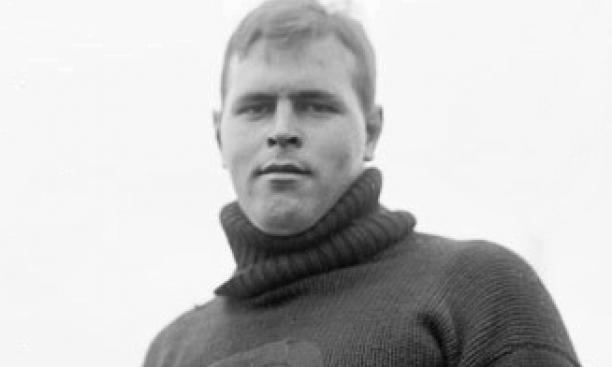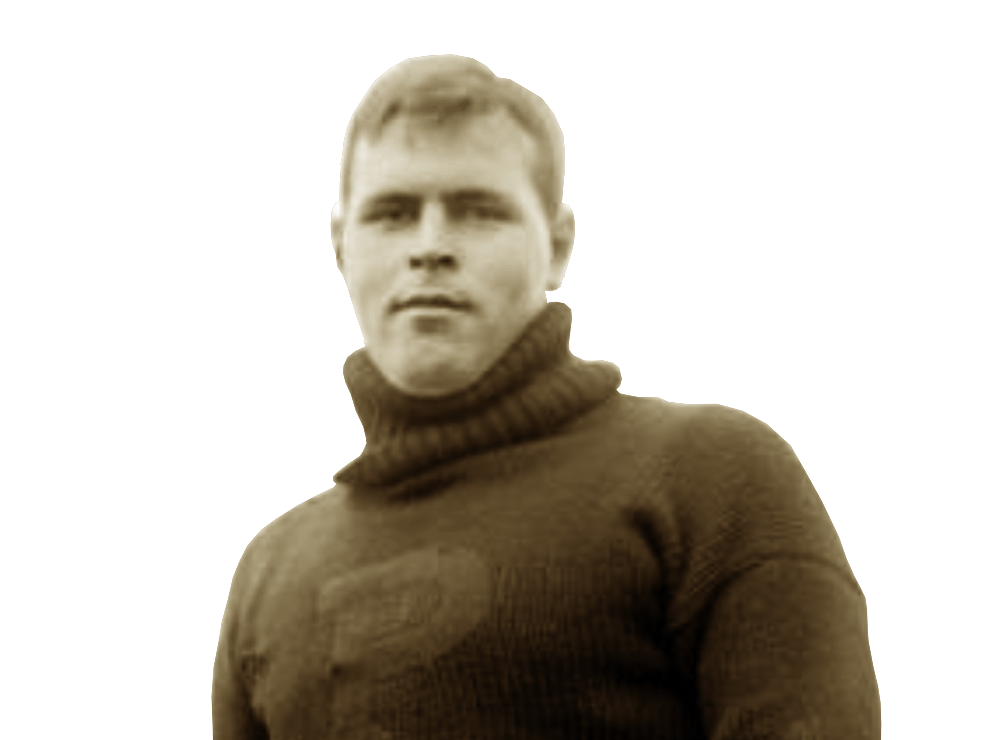

John R. DeWitt, Class of 1900, earned a silver medal in the 1904 Summer Olympics in St. Louis.
Lawrenceville’s Summer Olympians: John Riegel DeWitt, Class of 1900
As the reigning collegiate champion in the 16-pound hammer-throw for Princeton University, John R. DeWitt entered the 1904 Summer Games in St. Louis as a favorite to capture the gold medal, though he settled for silver. However, he was best known for his greatness on the gridiron.
As the reigning collegiate champion in the 16-pound hammer-throw for Princeton University, John R. DeWitt entered the 1904 Summer Games in St. Louis as a favorite to capture the gold medal. Ralph Rose of the Chicago Athletic Association presented his stiffest challenge, while John Flanagan of the Greater New York Irish Athletic Club lurked as a likely bronze medalist. According to author Charles J.P. Lucas in his recap of the 1904 games, DeWitt “was known to be in excellent physical condition and capable of beating his own record [and] … had thrown the hammer very well in practice at the stadium” just days before the event.
“Probably no weight even ever saw better men eligible to compete for an Olympic honor than this group of athletes,” Lucas continued, and it was proven when Flanagan’s first throw sailed 168 feet and 1 inch (51.23 meters), setting a new Olympic record. The unexpected new standard was beyond the reach of DeWitt, though his throw of 164-11 (50.26 meters) still bested Rose by nearly 15 feet. Though he performed to his top capabilities, DeWitt settled for silver in St. Louis.
DeWitt’s success as a collegiate star in the weight events was not surprising. He graduated from Lawrenceville as the School’s record holder in the 12-pound shot put (48-8, a mark that stood for thirty-nine years), discus (111 feet, which stood for more than twenty years), and the 12-pound hammer (188-4). Both literally and figuratively, DeWitt was something of a big man on campus. Modestly listed in the 1900 Olla Podrida at 6 feet and 195 pounds, the barrel-chested Riegelsville, Pennsylvania, native captained both the football and track teams, was vice president of the Fourth Form, Upper House, and the School, and was the director of Upper House. His talents earned him induction into Lawrenceville’s Athletic Hall of Fame in 1996.
Despite his silver Olympic medal, DeWitt was far more renowned for his exploits on the gridiron as one of college football’s early bona fide stars. His legend was cemented during the 1903 Princeton-Yale game in New Haven, in which both teams entered with identical 10-0 records. With Yale attempting to lengthen its 6-0 lead on a 25-yard field goal, DeWitt blocked the kick, scooped it up and sprinted 75 yards for a touchdown before tying the game with his subsequent point-after. Later, DeWitt kicked a 42-yard field goal (worth five points under the scoring rules of the era) on Princeton’s final possession of the game, giving the Tigers an 11-6 win and the mythical national championship. Back on campus, celebratory signs read “DeWitt 11, Yale 6” as undergraduates rang the bell in Nassau Hall until 1 a.m. The historical college football website tiptop25.com claims that if the Heisman Trophy had been awarded to college football’s premier player during that time, DeWitt would likely have been the recipient in 1903.
Sadly, DeWitt, who was beset by heart ailments, would not live to see his 1954 enshrinement in the College Football Hall of Fame. On his way from Connecticut to visit a New York cardiac specialist, he suffered a fatal heart attack in the club car as the train pulled into Grand Central Station on July 28, 1930. The president of the National Bag Corporation was just 48 years old. However, his legacy is still felt at Princeton, where in 1969, bequests from DeWitt and his wife helped establish the Elise Casey DeWitt and John Riegel DeWitt Scholarship for undergraduate and graduate aid.
A version of this story appeared in the summer 2016 issue of The Lawrentian.
